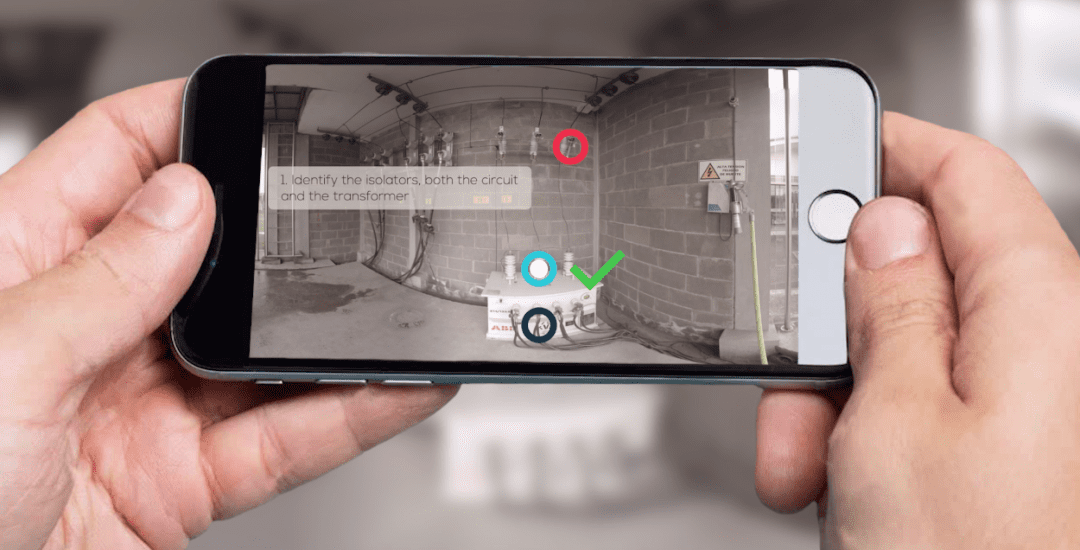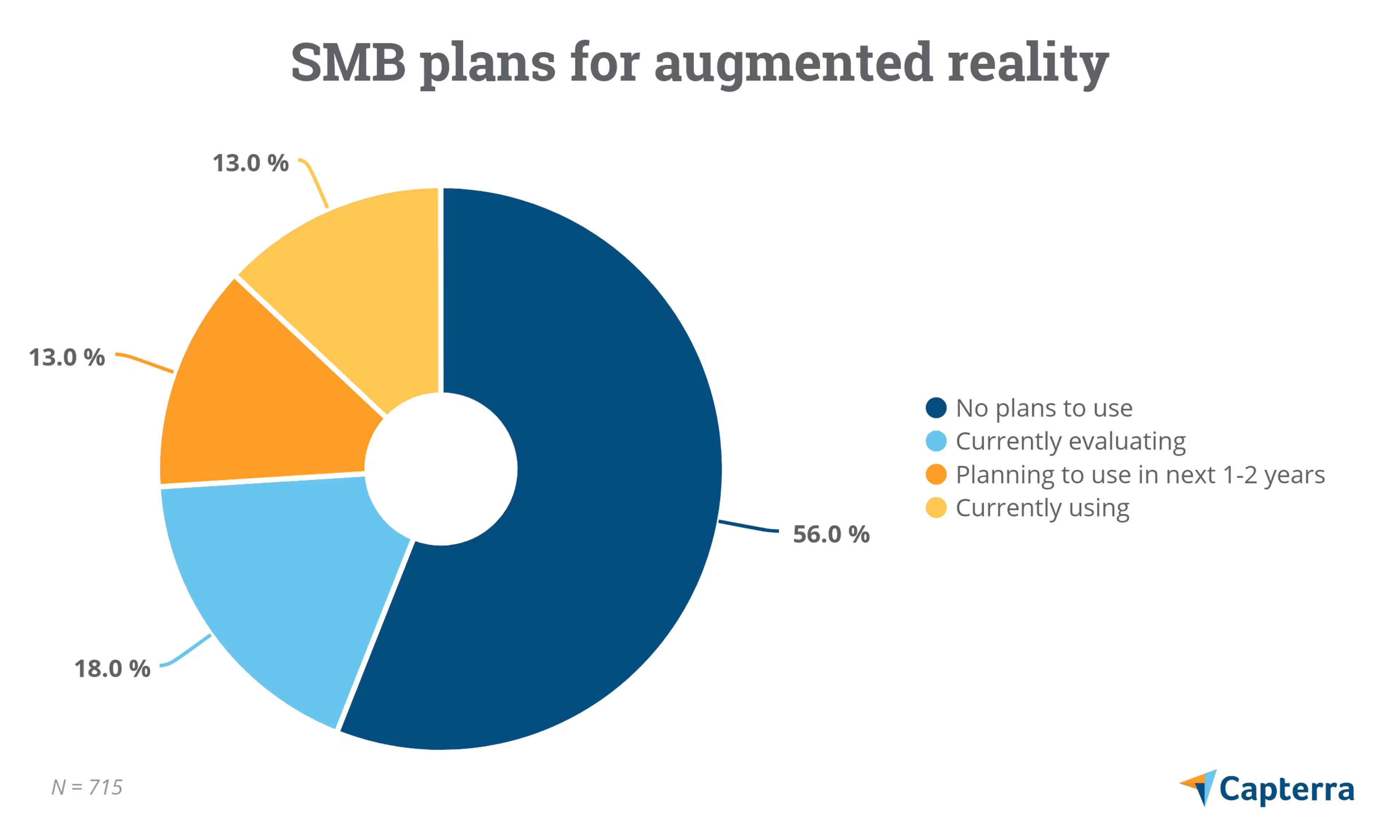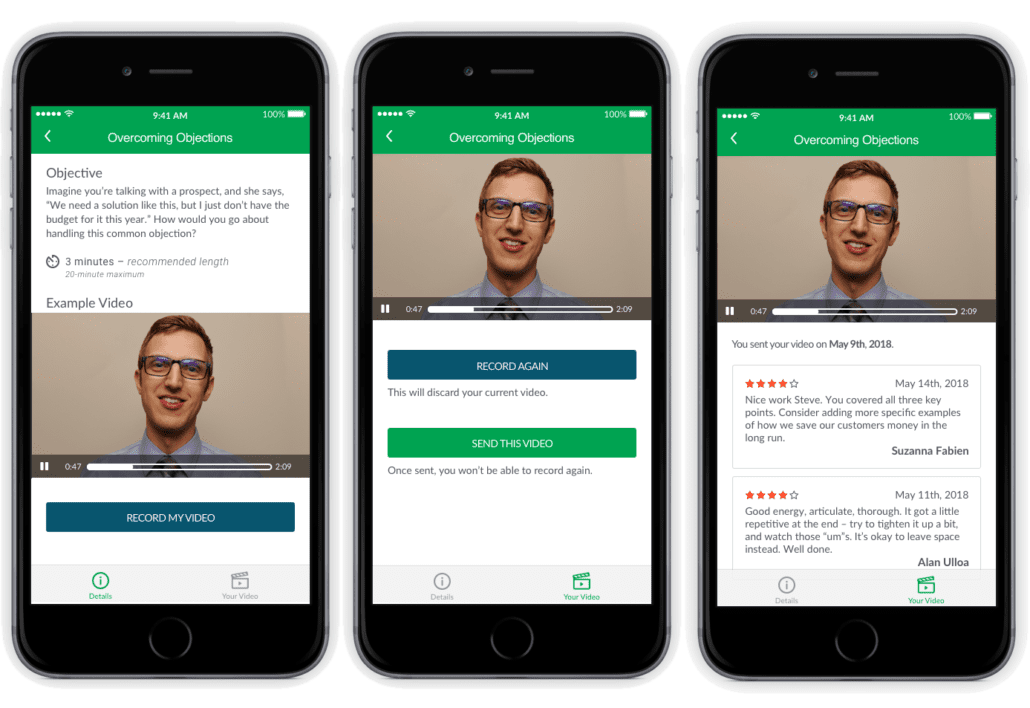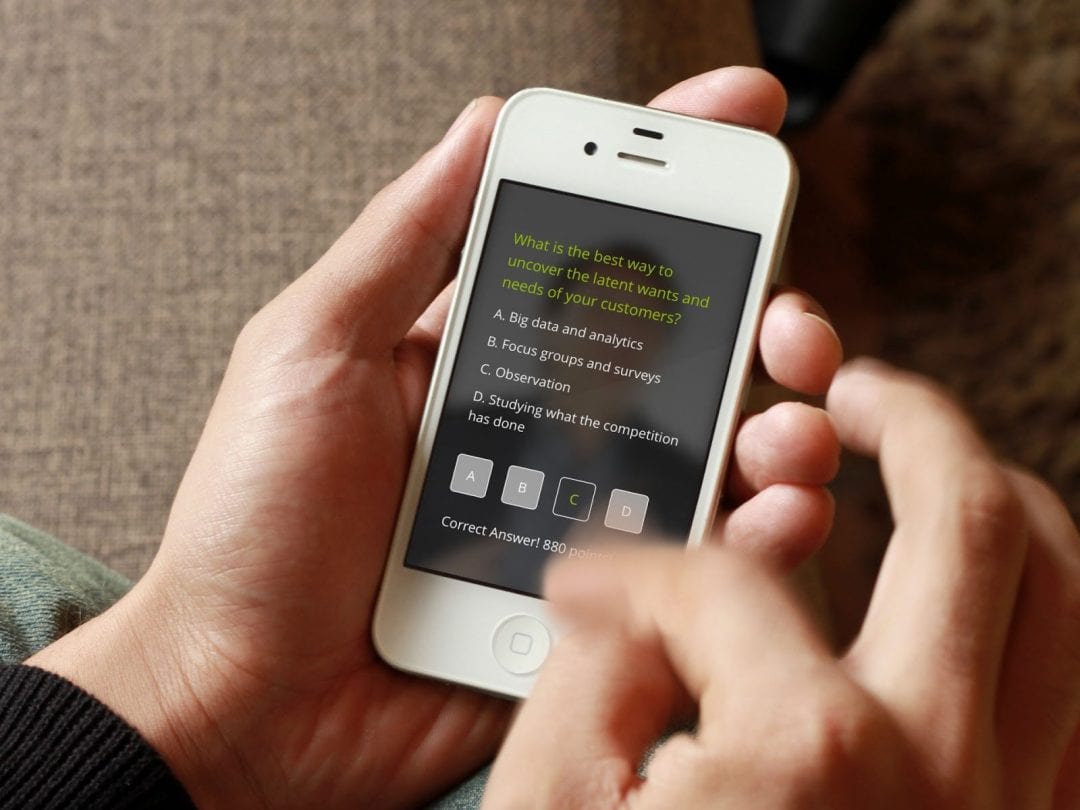As smartphone internet usage has skyrocketed past that of every other device, the mobile learning experience has shifted from an afterthought to a critical focus for training programs at small and midsize businesses (SMBs).
SMBs need to provide an exceptional mobile learning experience to engage their workers in training—especially the one in five U.S. adults who are now smartphone-only internet users.
But as other smartphone experiences have improved—be it online shopping, gaming, or memojis—worker expectations for what constitutes "exceptional" in mobile learning have risen considerably.

In other words, SMBs can no longer simply shrink their desktop courses down to smartphone size and call it mobile learning. Now, more than ever, they need to stay on top of the latest mobile learning trends to deliver a compelling employee experience.
So what are the mobile learning trends you need to be aware of? What are the big changes in mobile learning that are on the horizon? That's what we're here to discuss.
Below, we predict the three biggest mobile learning trends for 2019 that you should be aware of, along with some tips for how your SMB can start taking advantage of these trends today.
1. Mobile coaching will become a must-have
What is mobile coaching?
With mobile coaching, employees always have a subject matter expert (SME) in their pocket. Before an important sales pitch, for example, your workers can log in to their mobile coaching app and have a live video chat with a mentor or trainer to give them last-minute advice and boost their confidence.
If no one's available right then and there, that's OK. Workers can also search and watch videos from SMEs for a refresher on best practices for the exact type of task they're about to perform. Employees can even record their own video to practice for a presentation or a meeting for mentors or coaches to watch, rate, and leave feedback.
Why it's a trend for 2019
Take note, SMBs: Mentorship programs matter.
More than 71% of Fortune 500 companies now have one because of the business benefits they provide, and a survey of 5,000 members of Generation Z found that mentorship programs are the most desired job perk for this group after health insurance.
At the same time that mentorships are growing in importance, the gig economy and the rise of remote workers are making companies more geographically scattered than ever. SMBs need the right technology to connect their workforce with mentors on an ongoing basis, but also to provide more real-time, context-aware training opportunities when employees need them most.
That's why mobile coaching platforms are so attractive, and why they'll take off in 2019.
Right now, these apps are primarily being used by on-the-go sales teams and field service technicians; but as Gen Z demands more mentoring, mobile coaching will become ubiquitous at SMBs for all different types of roles.
How to leverage this trend at your SMB
If you don't already have a mentoring program in place, start one.
Begin gathering a list of senior employees and leaders in your organization that are interested in being a mentor, then reach out to SMEs at outside trade organizations or schools who can fill important competency gaps.
Once you have your roster of mentors in place, have them record short, informal videos for common work scenarios in their areas of expertise to build out the library in your mobile coaching platform.
2. Mobile microassessments will take off to aid knowledge retention
What are mobile microassessments?
Does training end when employees complete a course? Not so with mobile microassessments. Corporate trainers can create short, two- to three-question assessments, then schedule them to be sent out to workers days, weeks, or even months after they've completed a course to test how much knowledge they've retained.
Some platforms even allow workers to take these microassessments via text message, without needing to log in to an app or cloud-based system.
Why it's a trend for 2019
Knowledge retention is an ongoing concern in employee training programs. As soon as a course ends, science says workers can forget up to 50% of what they just learned within an hour, 70% within a day, and 90% within a month. That's bad, especially when it comes to topics such as password security that could bring your whole organization down if someone isn't careful.
Asking workers to take time out of their busy work schedules to jump back into a learning management system (LMS) and take a refresher course is a big ask, especially as LMSs continue to suffer from major usability issues. Corporate trainers need new ways to keep old training material fresh, without being obtrusive or overly demanding.
Enter mobile microassessments, which are the perfect solution to this problem for a number of reasons:
They're short. Taking a multiple-choice microassessment takes a few minutes at most. Employees can knock it out quickly and get back to work.
They're convenient. 86% of workers use their own mobile phone at work, and 80% of workers text for business purposes. Getting texted a microassessment on a device they're already using lowers what you're asking of workers considerably.
They carry an element of surprise. Employees who think they're safe when logged out of an LMS can't hide when they get a notification or text to take a microassessment. Setting a time limit also forces workers to rely solely on their own knowledge, rather than look things up online.
They give actionable data. As results of microassessments pour in, you can learn which specific topic areas your workforce has forgotten about in order to edit existing courses or add supplemental materials.
As SMBs continue to explore ways they can leverage microlearning to break up bloated training courses into engaging, bite-sized chunks, many will discover that mobile microassessments are the logical next step to keep what workers have already learned intact.
How to leverage this trend at your SMB
Standalone microlearning software is becoming a popular supplemental tool with LMSs to deliver this type of small, informal training to mobile devices. Consider investing in one of these systems if your LMS lacks the functionality you want for mobile microassessments.
Once you have your software in place, take some time to go through all of your courses to come up with microassessment questions and answer choices.
You should also meet with managers to discuss a testing frequency—the last thing you want is to annoy workers with too many assessments at once.
Thinking about hiring a mobile app development company for help optimizing your mobile learning capabilities? Browse our list of top mobile app development companies and learn more about their services in Capterra’s hiring guide.
3. More SMBs will get their hands on augmented reality (AR) performance support

Employees can use AR capabilities on their smartphones for on-the-job training (Source)
What is AR performance support?
Performance support tools have been around for a while now in a variety of forms—PDFs, infographics, charts, videos, you name it. Performance support tools consist of any training material that employees can access while they're working.
When paired with augmented reality (AR) capabilities, though, performance support jumps to a whole other level.
With AR performance support, workers can hold their phones up to whatever they're working on and get real-time information overlaid on their screen to give them guidance.
Why it's a trend for 2019
Despite corporate trainers' best efforts, 70% of employee learning still happens out of their grasp through on-the-job experience. That's a lot of trial and error for businesses that really can't afford a lot of error.
Realizing this, companies such as Boeing, Airbus, and AGCO have already deployed proprietary AR-powered apps to give workers the help they need when building engines, troubleshooting repairs, or finding parts in a giant warehouse.
But in 2019, this technology won't be just for the biggest businesses anymore.
As smartphones get, well, smarter, and Apple and Google continue to add tools to their AR development kits, more and more SMBs will be able to create their own AR experiences for their workers' phones, free of the bulky headsets and smart glasses of old.
According to a 2018 Capterra survey on top technology trends, as many as 46% of U.S. SMBs could be leveraging AR in the next one to two years:

If you're an SMB, it's time to start taking AR performance support seriously to give your workers the capabilities they need, when they need them.
How to leverage this trend at your SMB
The success of any AR implementation will always come down to use case. If you can visualize a clear use case for AR in your business, you can start to meet with developers to map out what your app will look like.
If you just start throwing AR at any problem because it's cool looking tech, however, it won't provide much value.
This opportunity with AR also presents a good time for you to dust off your other performance support materials. Do a thorough audit of your knowledge base with department heads to make sure every process in your company has clear, step-by-step documentation that's up to date.
What other mobile learning innovations will trend in 2019?
The global mobile learning software market will be a $37 billion industry by 2020. That means a lot of exciting new tools and vendors, and a lot of great potential for SMBs.
It also means anything can happen. Mobile coaching, mobile microassessments, and AR performance support will be big headlines in the world of mobile learning in 2019, but they won't be the only things going on.
What do you think will be the biggest mobile learning trends in 2019? Let me know in the comments. And if you're in need of a new mobile learning system, head here to learn more about popular options and find the best platform for your needs.

